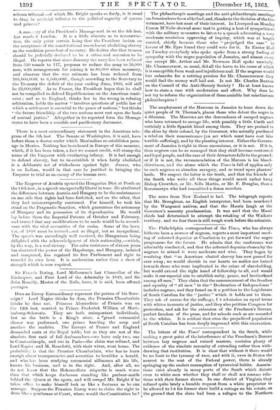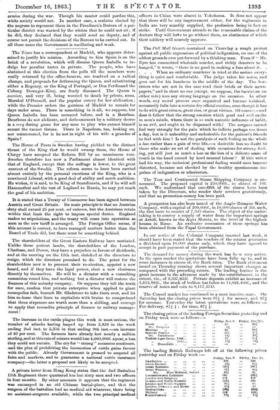The letters of the Times' correspondent in the South, while
making a great point of the interference of the Freedmen's Bureau between lazy negroes and ruined masters, contains plenty of evidence of the absolute necessity of extending rather than with- drawing that institution. It is clear that without it there would be no limit to the tyranny of race, and with it, even in States the nearest to the seat of the Federal power, there is already springing up the coolest resumption of tyrannical habits. Associa- tions exist already in many parts of the South which dictate even to white men whether they shall or shall not resume rela- tions with their, former slaves. In one district of Virginia they refused quite lately a humble request from a white proprietor to be allowed to let his former slave build a cottage on his estate, on the ground that the slave had been a refugee to thp Nprtlwrn armies during the war. Though his master could pardon this, white society would not. In another case, .a mulatto elected by the negroes to represent them in the Freedmen's Bureau of a par- ticular district was warned by the whites that he could not sit ; if he did, they declared that they would send no deputy, and of
• course not permit the decisions of the Bureau to be carried out. In .all these cases the Government is vacillating and weak.



































 Previous page
Previous page